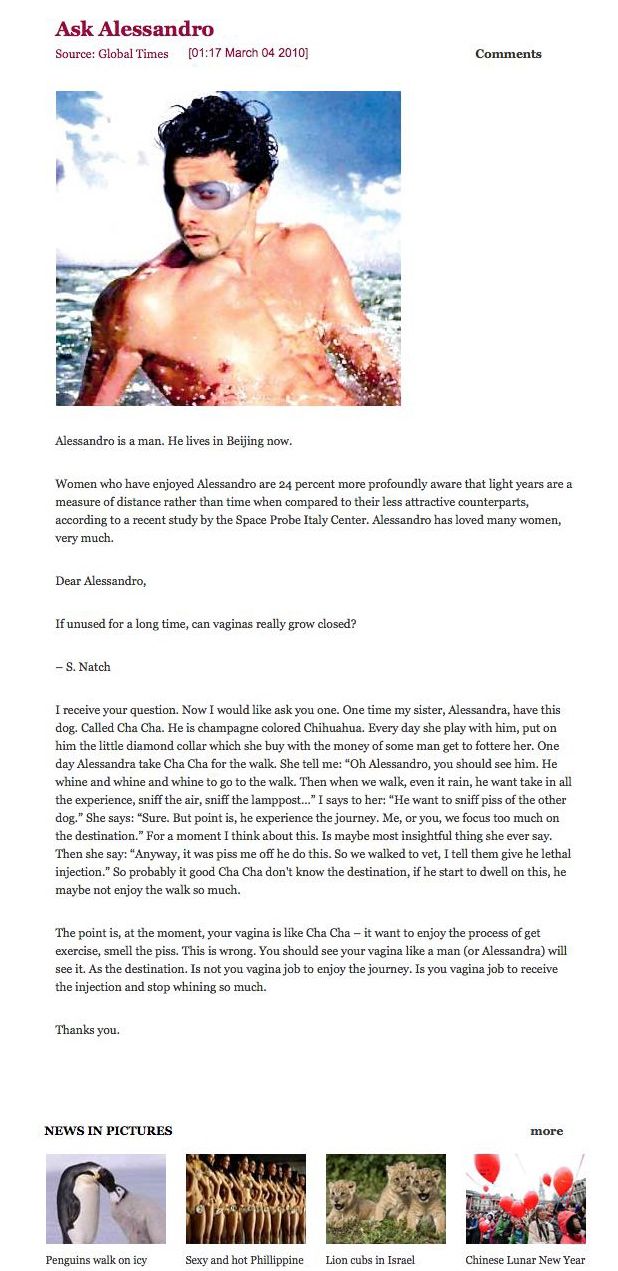I have lots of thoughts about what happened last night, and I may keep expanding this post during the day if I have time. But this clear-headed perspective from one of our best journalists reflects, to me, the obvious – we have made an important step in the right direction.
For now, the significance of the vote is moving the United States FROM a system in which people can assume they will have health coverage IF they are old enough (Medicare), poor enough (Medicaid), fortunate enough (working for an employer that offers coverage, or able themselves to bear expenses), or in some other way specially positioned (veterans; elected officials)… TOWARD a system in which people can assume they will have health-care coverage. Period.
That is how the entire rest of the developed world operates, as noted yesterday. It is the way the United States operates in most realms other than health coverage. Of course all older people are eligible for Medicare. Of course all drivers must have auto insurance. Of course all children must have a public school they can attend. Etc. Such “of course” rules offer protection for individuals but even more important, they reduce the overall costs to society, compared with one in which extreme risks are uncontained. The simplest proof is, again, Medicare: Does anyone think American life would be better now, on an individual or a collective level, if we were in an environment in which older people might have to beg for treatment as charity cases when they ran out of cash? And in which everyone had to spend the preceding years worried about that fate?
There are countless areas in which America does it one way and everyone else does it another, and I say: I prefer the American way. Our practice on medical coverage is not one of these. Despite everything that is wrong with this bill and the thousand adjustments that will be necessary in the years to come, this is a very important step.
Period. I know all the disappointment from both sides, all the complaints, all the fears. Everyone has an idea for how this could have been done better. I’ve been watching the issue carefully for a year now, and I remember just a few weeks ago when the majority opinion was that this bill was impossible to pass. I remember all the cries of panic, again from both sides. Under the circumstances, I am amazed and delighted that we passed any bill at all, and for that we have the much demonized Nancy Pelosi and Barack Obama to thank. They did it. They pulled it off. Now comes the next battle, tweaking the bill, getting it signed and implemented, dealing with what’s not workable, etc. But for the first time we actually took the step forward, and for tens of millions of Americans a huge burden of doubt and fear and worry has been lifted. This was a victory for them and for all of us, even if it isn’t the bill we wanted to see. That will come in time.
Updates:
Must-read Paul Krugman piece on the use of fear by the GOP to stoke people’s basest instincts to help kill the bill.
Even more must-read: former bush speechwriter Frum lacerates Republicans whose strategy of just saying No to everything has come back to destroy them:
Invoking Republican Sen. Jim DeMint’s (R-SC) infamous remarks last July that killing the legislation would be President Obama’s “Waterloo,” David Frum offered a dire assessment of the GOP’s fate. “[I]t’s Waterloo all right: ours,” he wrote on his blog Frum Forum.
“Conservatives and Republicans today suffered their most crushing legislative defeat since the 1960s,” said Frum, a former speechwriter and adviser to President George W. Bush. “It’s hard to exaggerate the magnitude of the disaster.”
“We followed the most radical voices in the party and the movement, and they led us to abject and irreversible defeat,” he explained, on the day the House of Representatives cleared the historic legislation for the president to sign into law.
I’d love to see them try to repeal the bill. I’d love to see them try to take away health care from the sick and the needy. I’d love to see them try to re-enforce people getting dropped for pre-existing conditions. bring it on, as Frum’s boss used to say.
Even Jane Hamsher, with whom I had serious disagreements due to her insistence on an all-or-nothing approach (nice in theory, impossible in today’s super-charged, super-polarized political world) acknowledges this as a big step forward. I know, I wanted a public option, too, and I wanted Obama to flush out all the corporate interests and start doing what’s good for the actual citizens. I am also pragmatic and realistic, and believe these things have to be done one step at a time. We now have a foot firmly in the door.
Obama knew all along where he wanted to go. Maybe it wasn’t where I wanted it to go, but I have to credit him with pulling off a spectacular upset, for handing the right their greatest defeat in modern memory, and for proving he is a fighter. Yes, I wish he’d do more for my pet progressive causes, but in this climate, with today’s daunting threats, impossible for any one politician to conquer, I believe he’s about the best we can hope for. Watch his ratings soar, and watch the Republicans dig themselves in deeper with messages of hate and slander. Bring it on.

Comments